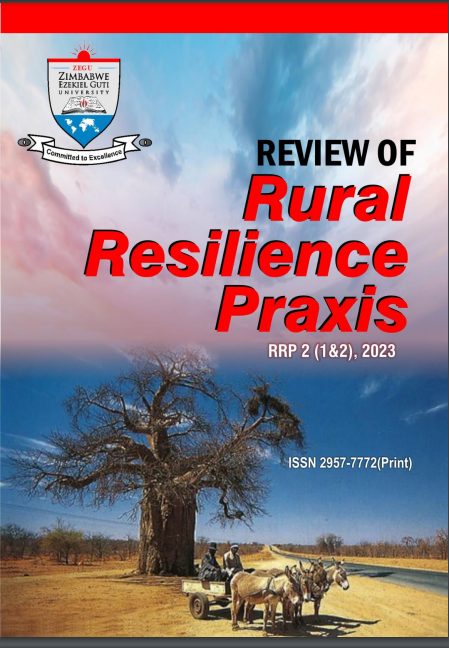Perceptions of villagers on traditional food crops production in response to climate change in Bocha village, Manicaland province
DOI:
https://doi.org/10.71458/s69fyq97Keywords:
poverty, indigenous knowledge systems, food security, Drought, Mitigation, AdaptationAbstract
Based on the qualitative approach, this research highlights an assessment of the perceptions of villagers on traditional food crop production in response to climate change. The study was inspired by the need to unearth views on traditional food crop production, how they are produced in the wake of climate change and the mitigation measures they employ to ensure food security and poverty reduction. The study was undertaken in Bocha Village in the Manicaland Province of Zimbabwe. The Indigenous Knowledge (IK) theoretical framework used hypothesised ways of knowing, seeing and thinking, passed down orally from generation to generation and that reflect thousands of years of experimentation and innovation in all aspects of life. A sample of 10 was drawn using purposive sampling. Data was gathered using semistructured interviews and focus group discussions with participants. Findings were thematically presented. The study revealed that villagers view traditional food crops as food security commodities with droughttolerant and climate mitigation potential produced using indigenous knowledge systems. They also reduce poverty through commercial and nutritional benefits derived from their processing




